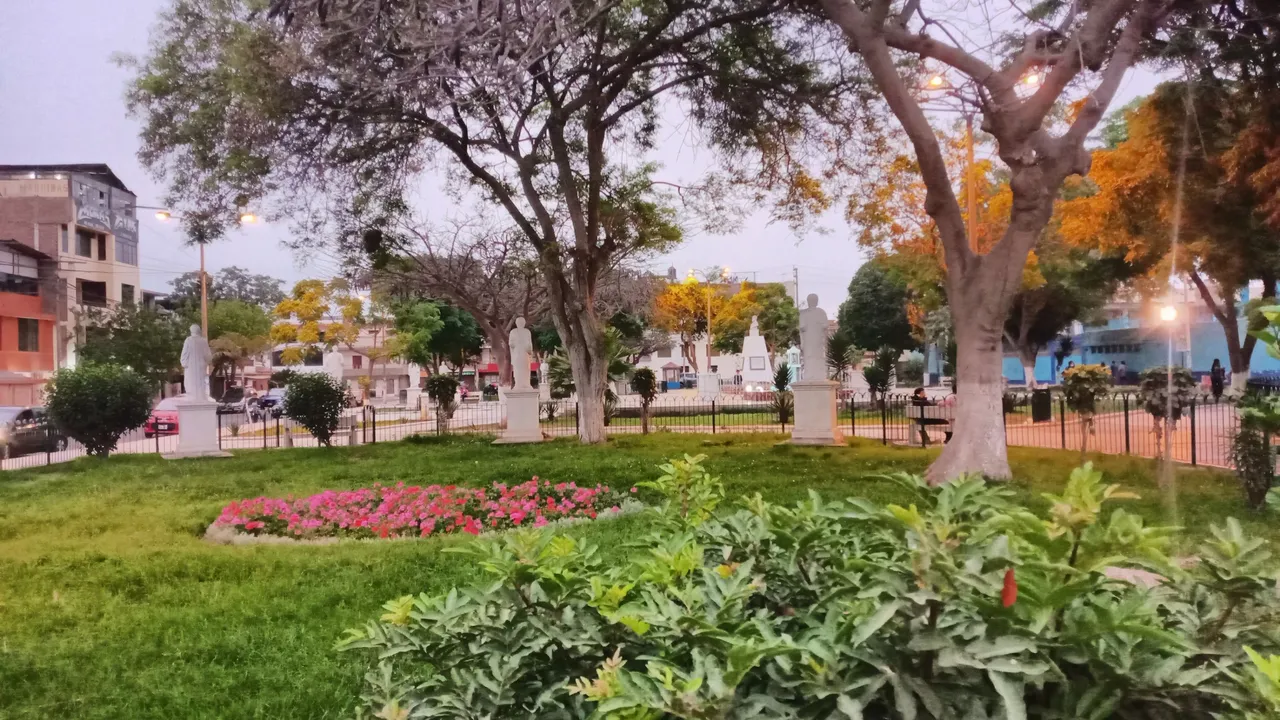

- Que tal hivers, espero que estén muy bien hoy, mañana y siempre!
En el último año he estado leyendo un poco de filosofía, un poco de Aristóteles, Platón, Marco Aurelio, Descartes, y mi favorito personal, el que me hizo encariñarme y profundizar en el Estoicismo, Lucio Anneo Séneca
Así que cuando me enteré de que en Trujillo hay un Parque de los Filósofos, dedicado a estos y otros pensadores destacados de la época, no lo dudé.
Teníamos que visitarlo!
Y tomar fotos!
Y cómo no, subirlas a Hive.
Y claro, a Pinmapple!
Así que luego de un rato en un autobús llegamos, compré unos trozos de caña de azúcar como snack y...
- Howdy hivers, I hope you are doing great today, tomorrow and always!
In the last year I have been reading a bit of philosophy, a bit of Aristotle, Plato, Marcus Aurelius, Descartes, and my personal favorite, the one who made me get attached to and delve into Stoicism, Lucius Annaeus Seneca.
So when I found out that in Trujillo there is a Park of the Philosophers, dedicated to these and other outstanding thinkers of the time, I didn't hesitate.
We had to visit it!
And take pictures!
And of course, upload them to Hive.
And of course, to Pinmapple!
So after a while in a bus we arrived, I bought some pieces of sugar cane as a snack and....

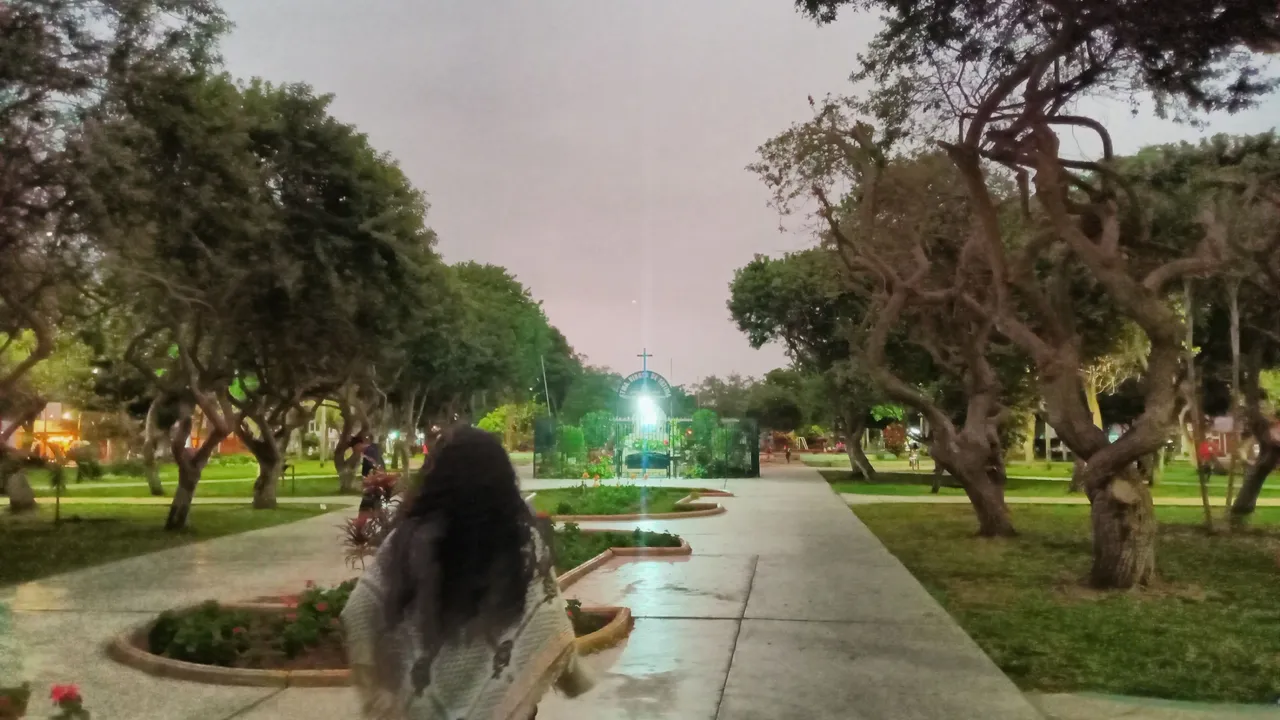
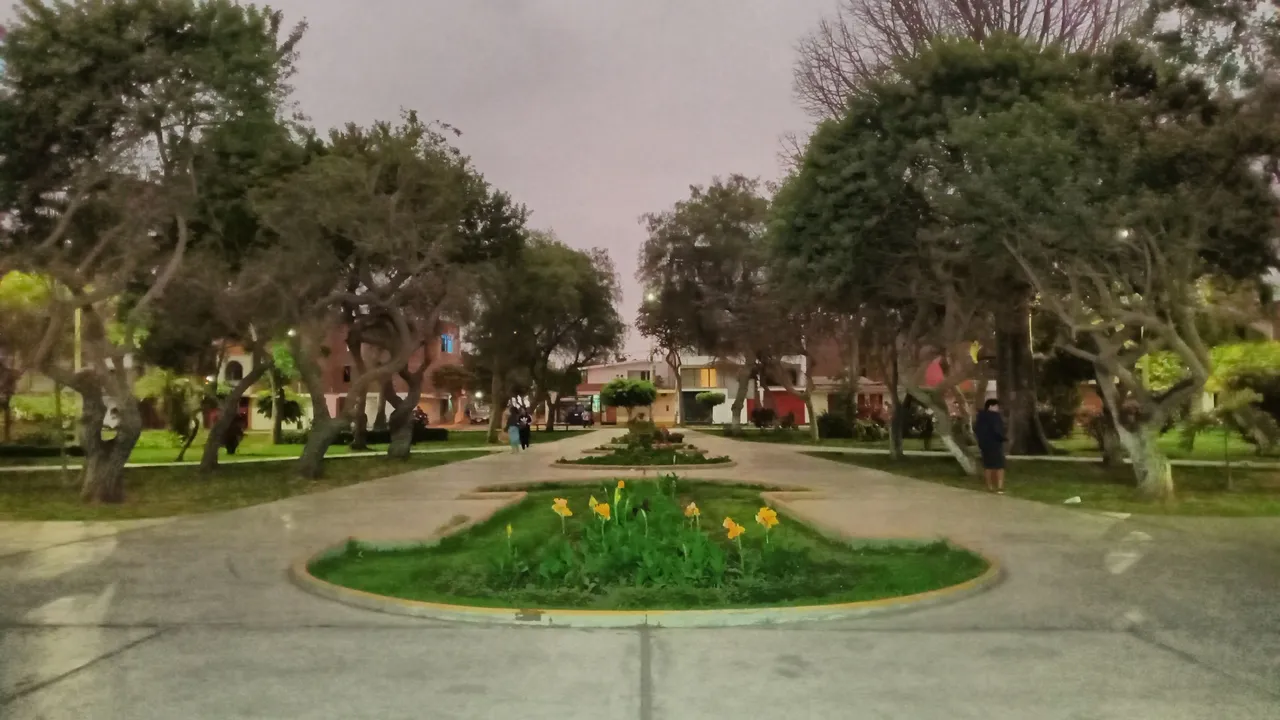
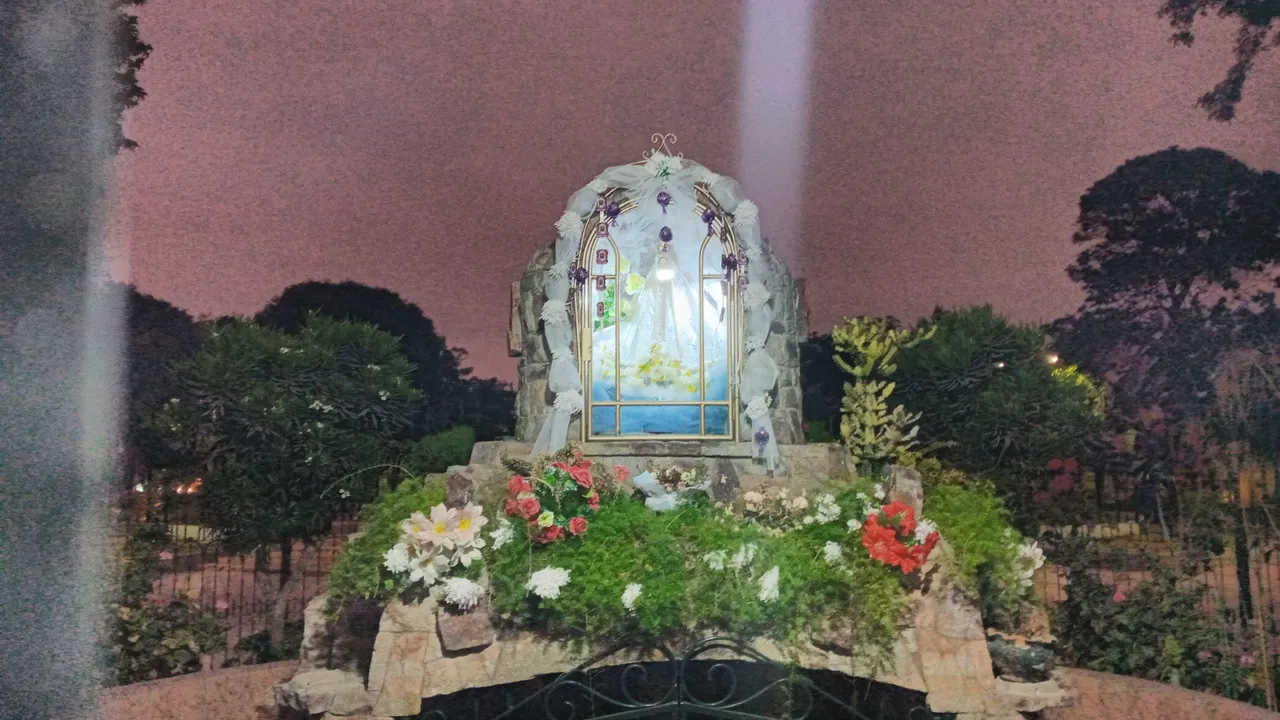

El parque en general es muy bonito, es relativamente pequeño pero espacioso y bien organizado, con las estatuas bien cuidadas y me gustó que cada una tenían una breve descripción de la persona.
El recorrido entre estos pensadores comienza fuerte con Federico Engels, filósofo aleman que vivió entre los años 1820 y 1895 y cuya inscripción dice...
"Cofundador del marxismo. Su aporte más significativo a esta filosofía fue introducir el concepto de dialectica a la realidad, según el cual ella está en constante cambio y transformación.
La dialectica no es otra cosa que "la ciencia de las leyes generales del movimiento y evolución de la naturaleza, de la sociedad y del pensamiento."
Continúa con otro filósofo alemán, Manuel Kant, su inscripción dice:
Enseñó que el hombre es una persona moral porque tiene conciencia del deber. La conciencia moral del hombre necesita de un imperativo categorico para actuar. Este imperativo obra de modo que puedas querer que lo que haces sea ley universal de la naturaleza. Así la buena voluntad que persigue al imperativo obra por puro respeto al deber.
No puedo decirles mucho, no soy gran fan de sus maneras de pensar ni de su obra. Continuamos...
The park in general is very nice, it is relatively small but spacious and well organized, with well maintained statues and I liked that each one had a brief description of the person.
The tour among these thinkers starts strong with Federick Engels, German philosopher who lived between 1820 and 1895 and whose inscription reads....
"Co-founder of Marxism. His most significant contribution to this philosophy was to introduce the concept of dialectics to reality, according to which it is in constant change and transformation.
Dialectics is nothing other than "the science of the general laws of the movement and evolution of nature, society and thought".
He continues with another German philosopher, Manuel Kant, his inscription reads:
He taught that man is a moral person because he has a conscience of duty. Man's moral conscience needs a categorical imperative to act. This imperative works in such a way that you can will what you do to be a universal law of nature. Thus the good will that pursues the imperative works out of pure respect for duty.
I can't tell you much, I'm not a big fan of his thinking or his work. Let's continue...
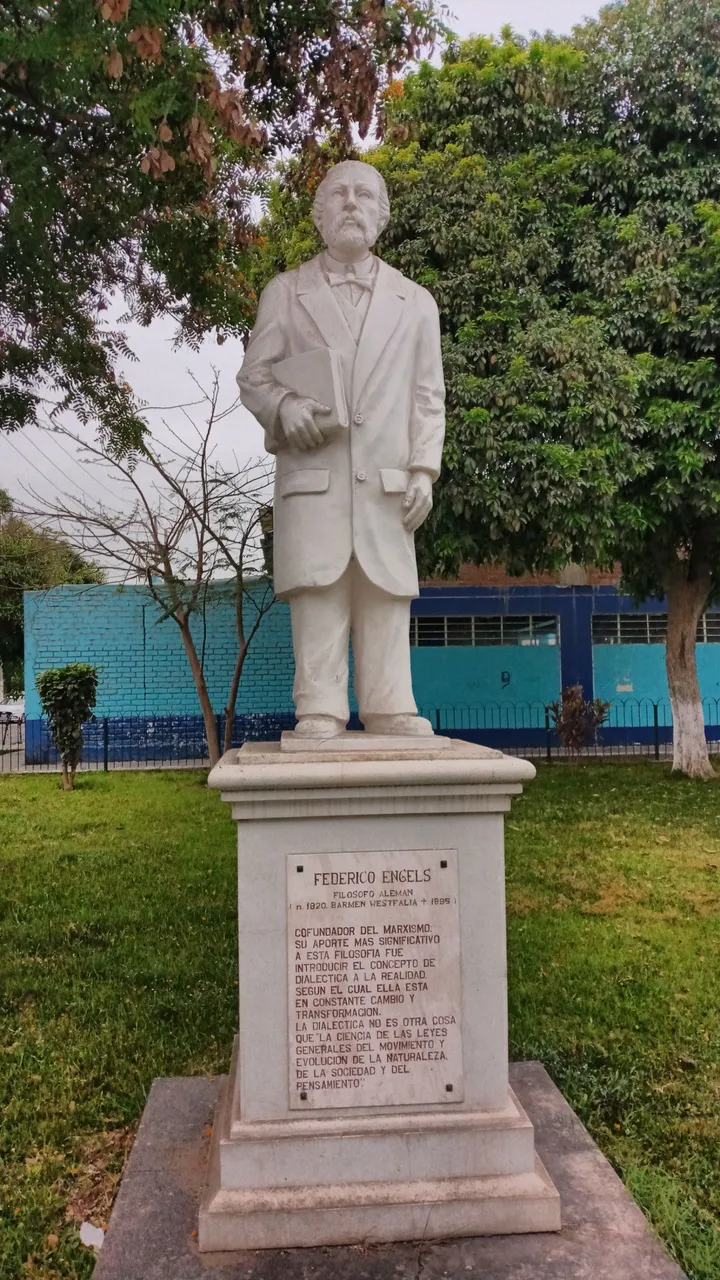
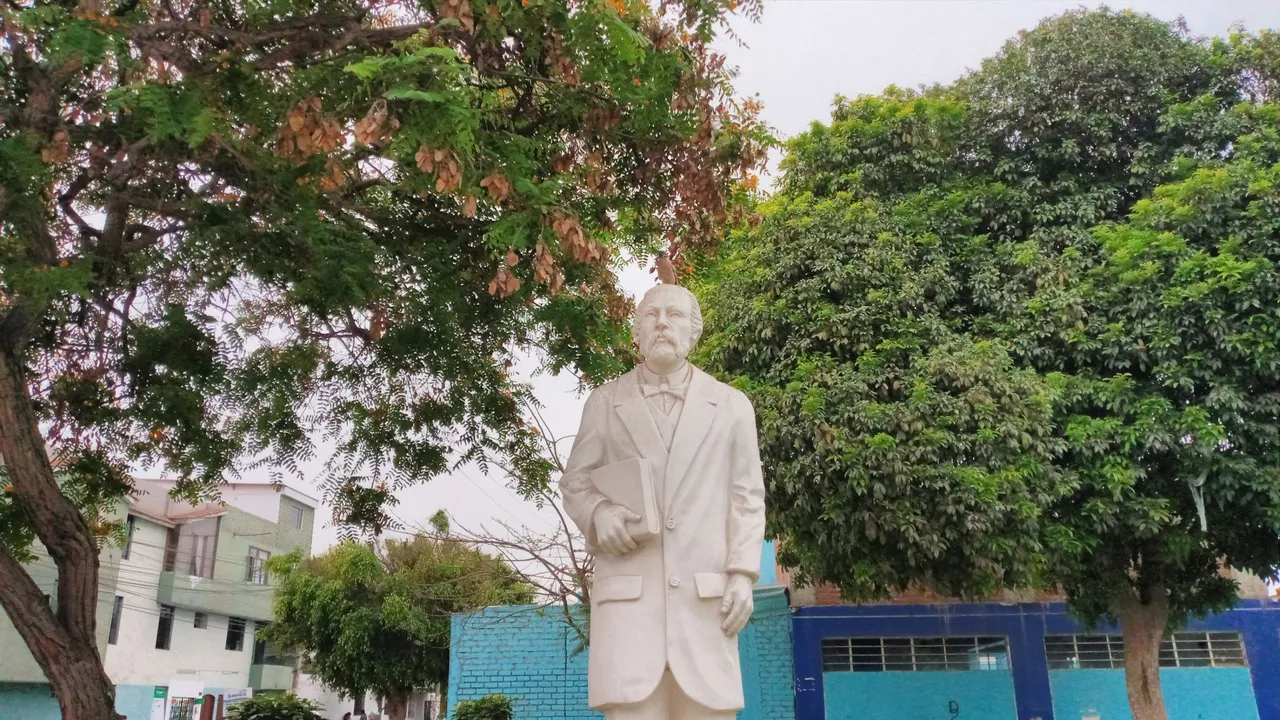
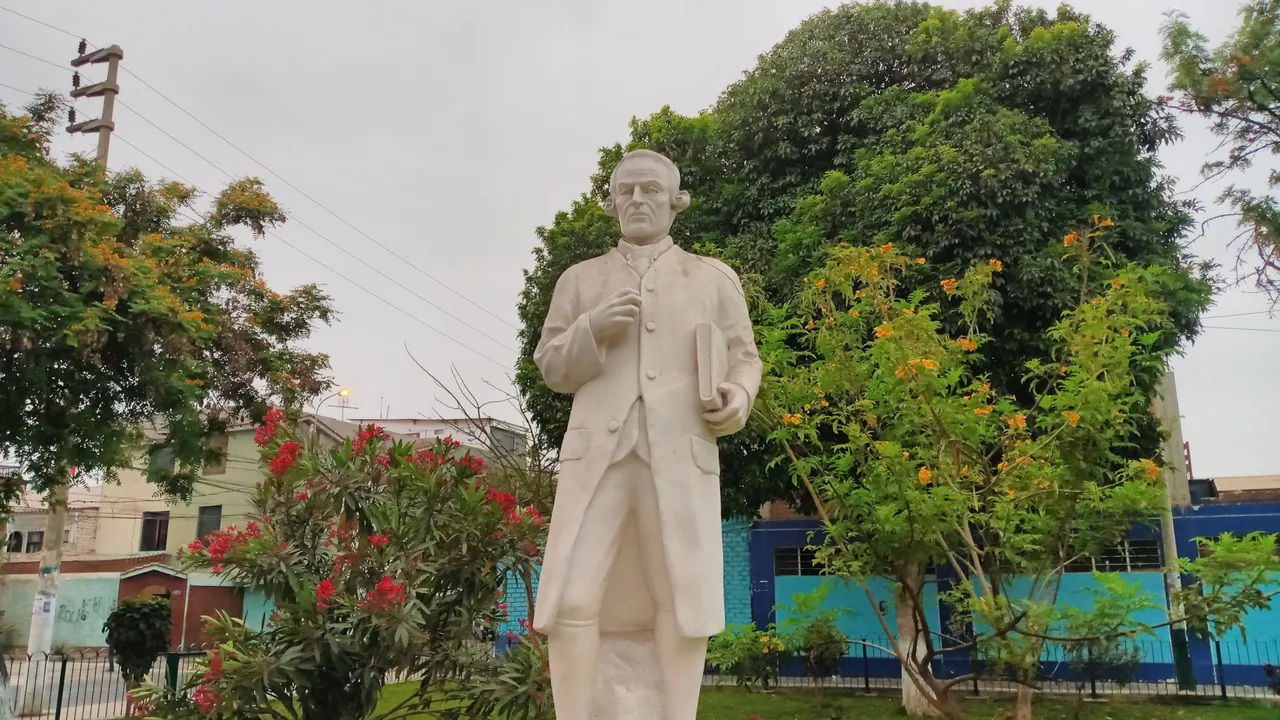
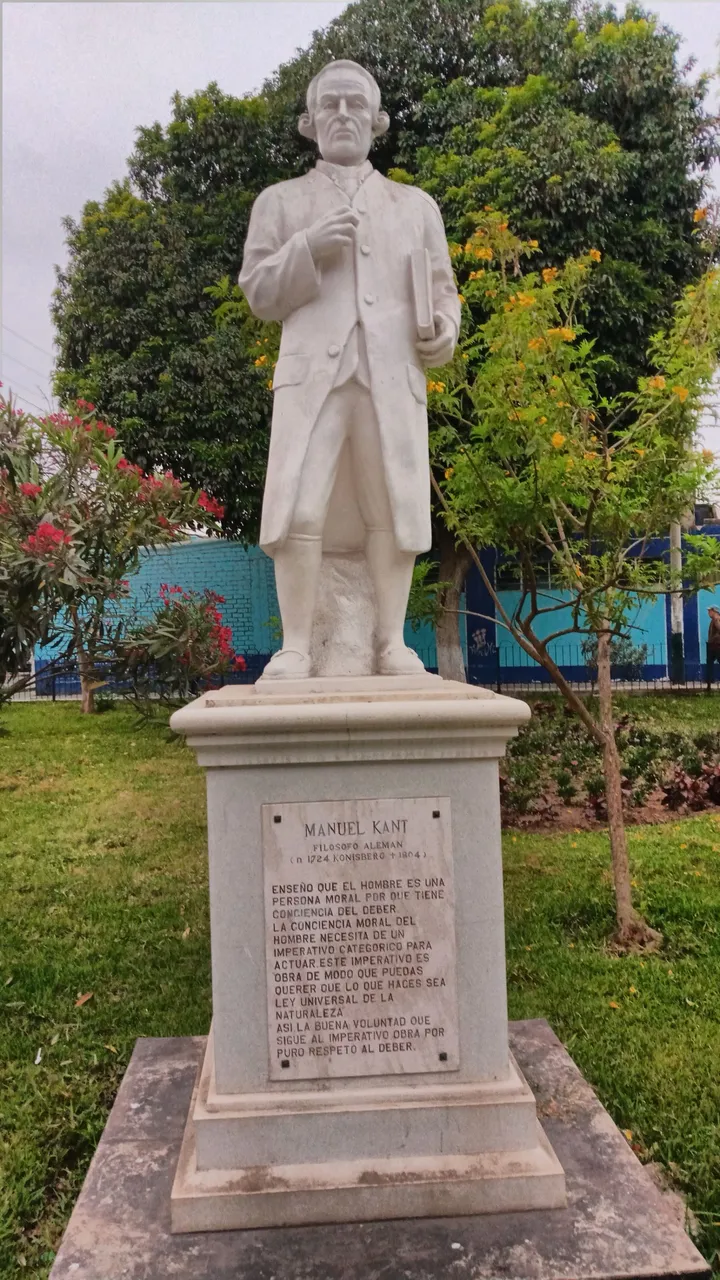

Continuamos pesado con Montesquieu y Jaime Luciano Balmes;
Jaime Luciano Balmes, filósofo español. La inscripción elegida para honrar su obra y memoria indica...
Llamado "Doctor Humanus" Defensor de la neoecolastica, el catolicismo y la tradición para sacar de la duda a quienes consideran que la religión cristiana no sea verdadera, pero desearían que lo fuese les dice "el fiel que aborrece la verdad religiosa está ya en camino de la incredulidad; el incrédulo que la ama ya está en camino de la fé."
Montesquieu, vivió durante los años 1689 y 1755, su inscripción dice...
Filosofo representante de la ilustración francesa. En su obra "Espíritu de las Leyes" para garantizar el abuso del ejercicio del poder del estado y la libertad del hombre delimita y fundamenta su división en tres poderes; el Legislativo, el Ejecutivo, y el Judicial."
We continue heavy with Montesquieu and Jaime Luciano Balmes;
Jaime Luciano Balmes, Spanish philosopher. The inscription chosen to honor his work and memory indicates...
Called "Doctor Humanus" Defender of neoecolasticism, Catholicism and tradition to remove from doubt those who consider that the Christian religion is not true, but wish it were, he tells them "the faithful who abhors religious truth is already on the way to unbelief; the unbeliever who loves it is already on the way to faith."
Montesquieu, lived during the years 1689 and 1755, his inscription reads....
Philosopher representative of the French Enlightenment. In his work "Spirit of the Laws" to guarantee the abuse of the exercise of state power and the freedom of man, he delimits and bases his division in three powers; the Legislative, the Executive, and the Judicial".
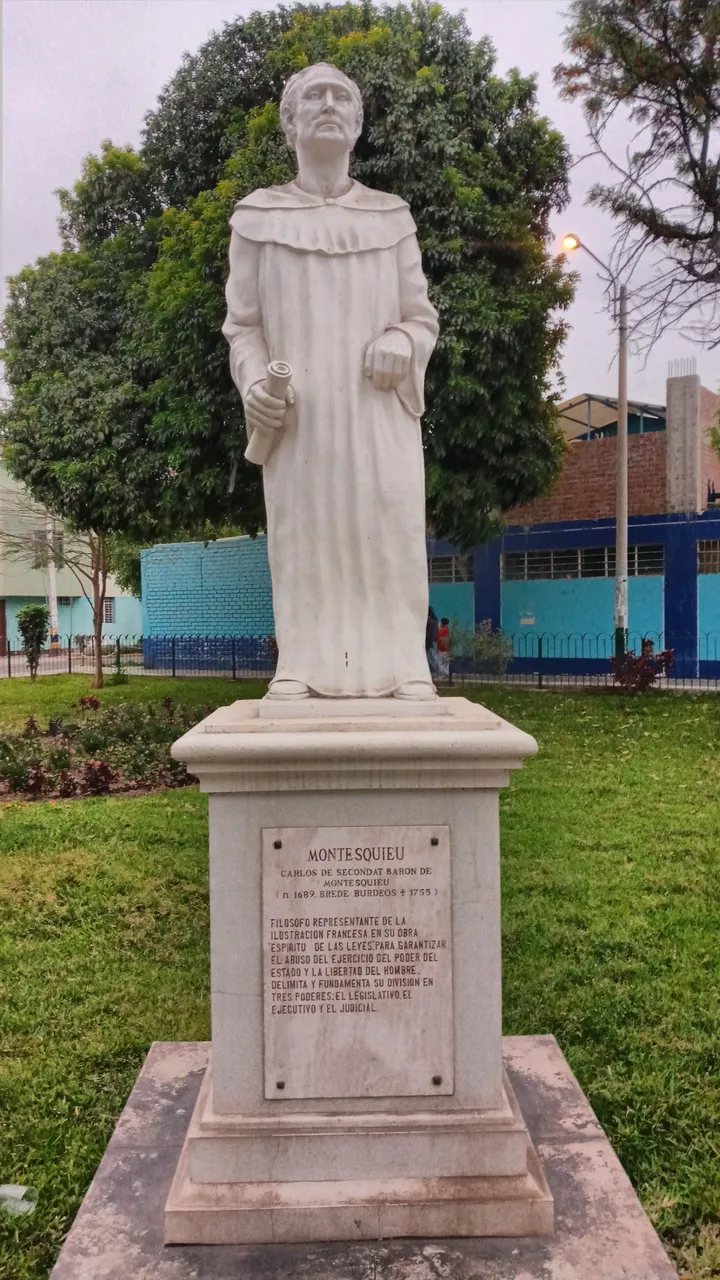
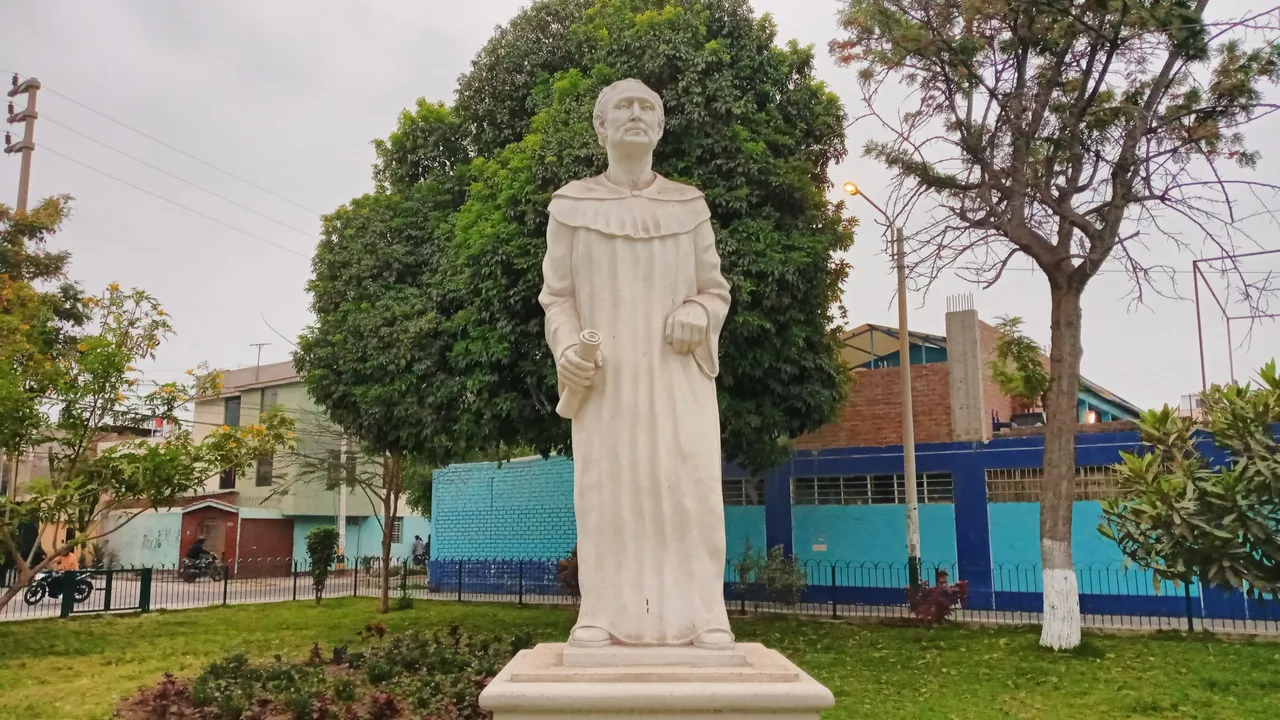
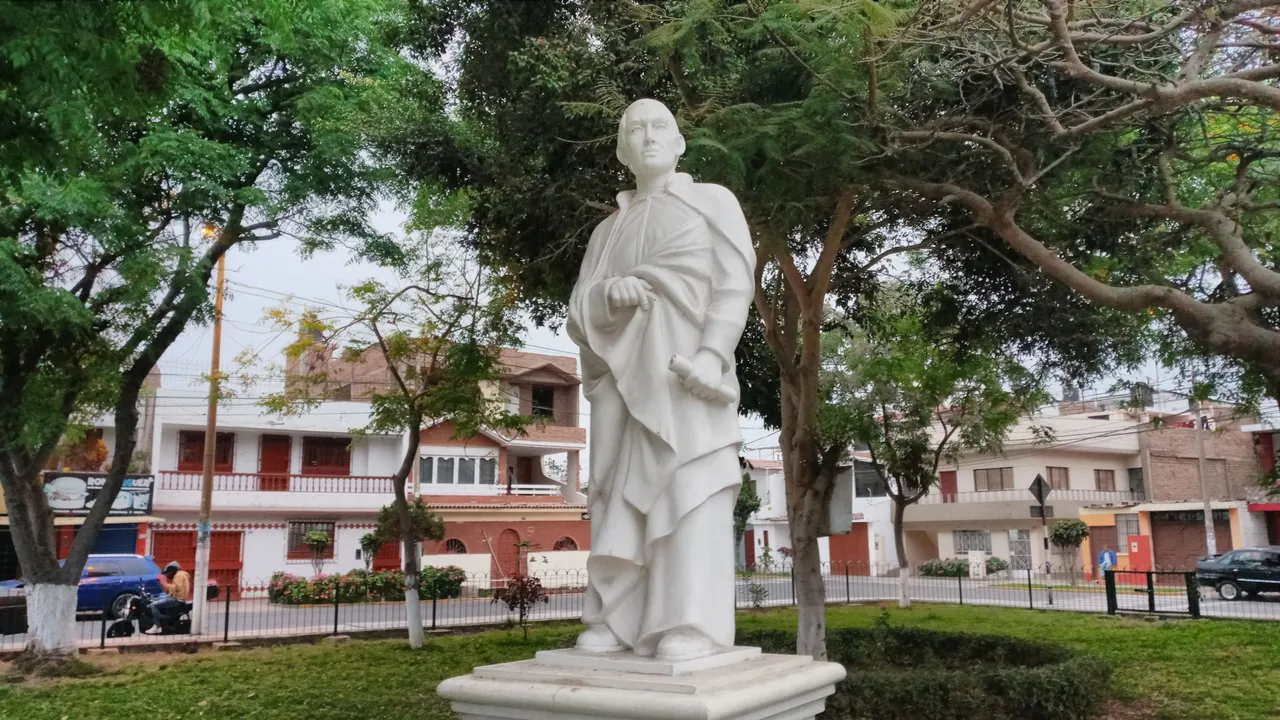
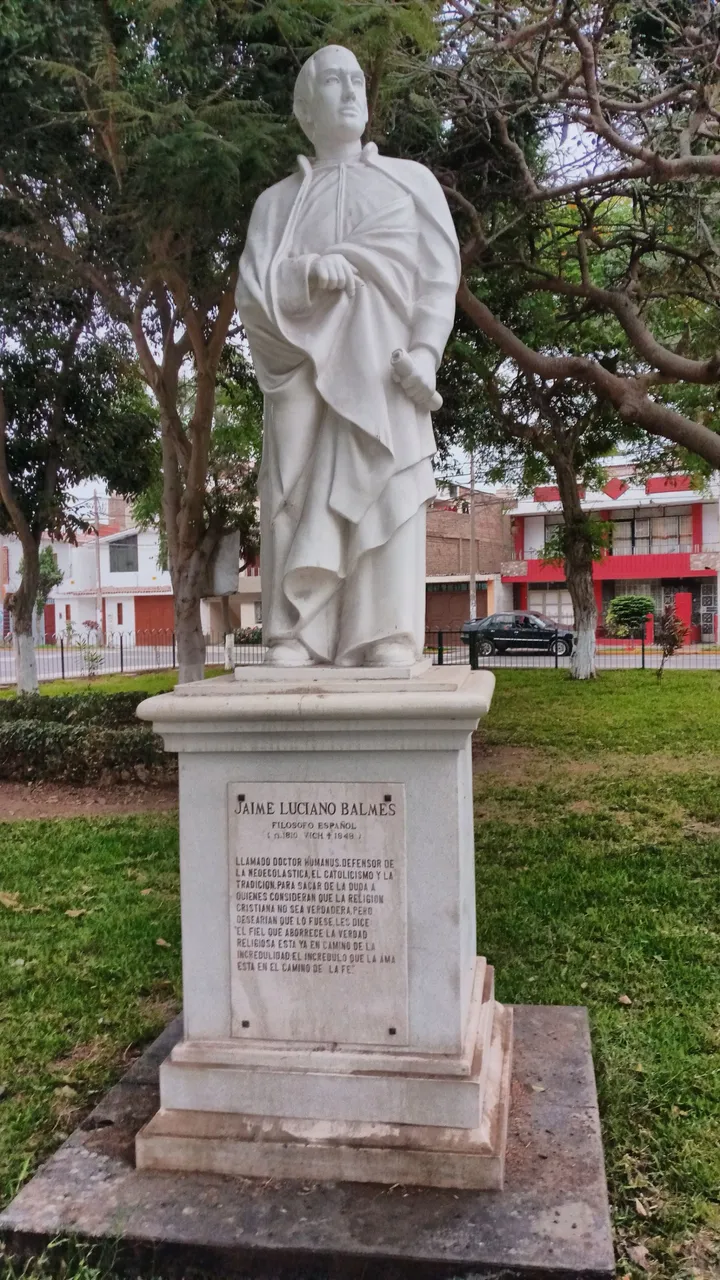

Más contemporáneos con nosotros, van José Ortega & Gasset y Augusto Salazar Bondy...
Entre los años 1883 y 1955, José Ortega y Gasset, oriundo de Madrid, España, este filósofo...
Afirmó que la realidad primaria y radical es ese quehacer del yo con las cosas, que llamamos la vida. Vivir es tratar con el mundo, dirigirse a el, actuar en el , ocuparse de el. Por ello afirma, refiriendose a la vida de cada hombre "Yo soy YO y mi circunstancia".
Augusto Salazar Bondy, filosofo peruano, habitó Lima durante los años 1925 y 1974...
Su aporte más original es su planteamiento sobre la cultura y la filosofia de la dominación y liberación. Somos una cultura dominada, dependiente, alienada. Debemos buscar nuestra liberación a partir de la conciencia de esta situación podemos ser un esfuerzo de liberación compartido, una rebeldia que potencia y aglutina todas las fuerzas sociales".
Escribió.
More contemporary with us are José Ortega & Gasset and Augusto Salazar Bondy...
Between the years 1883 and 1955, José Ortega y Gasset, a native of Madrid, Spain, this philosopher...
He affirmed that the primary and radical reality is that doing of the "I" with things, which we call life. To live is to deal with the world, to address it, to act in it, to occupy oneself with it. That is why he affirms, referring to the life of each man, "I am I and my circumstance".
Augusto Salazar Bondy, Peruvian philosopher, lived in Lima during the years 1925 and 1974...
His most original contribution is his approach to culture and the philosophy of domination and liberation. We are a dominated, dependent, alienated culture. We must seek our liberation from the awareness of this situation we can be a shared liberation effort, a rebellion that empowers and brings together all social forces".
He wrote.
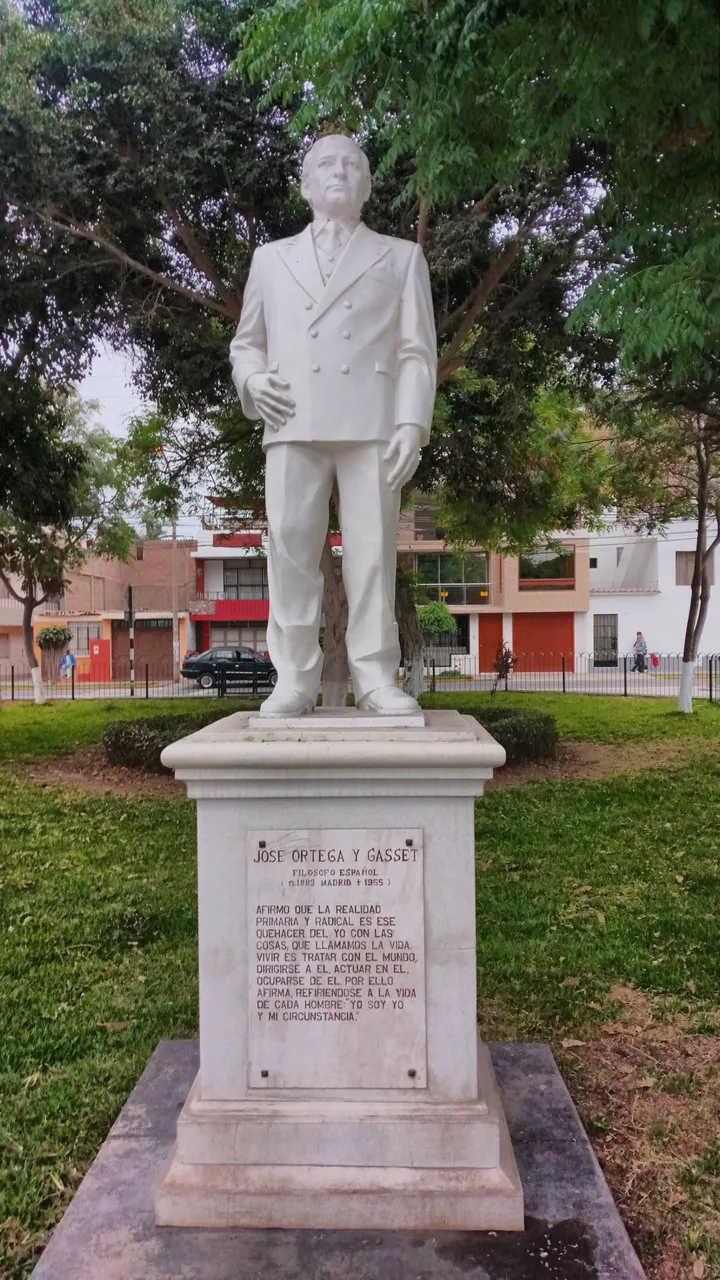
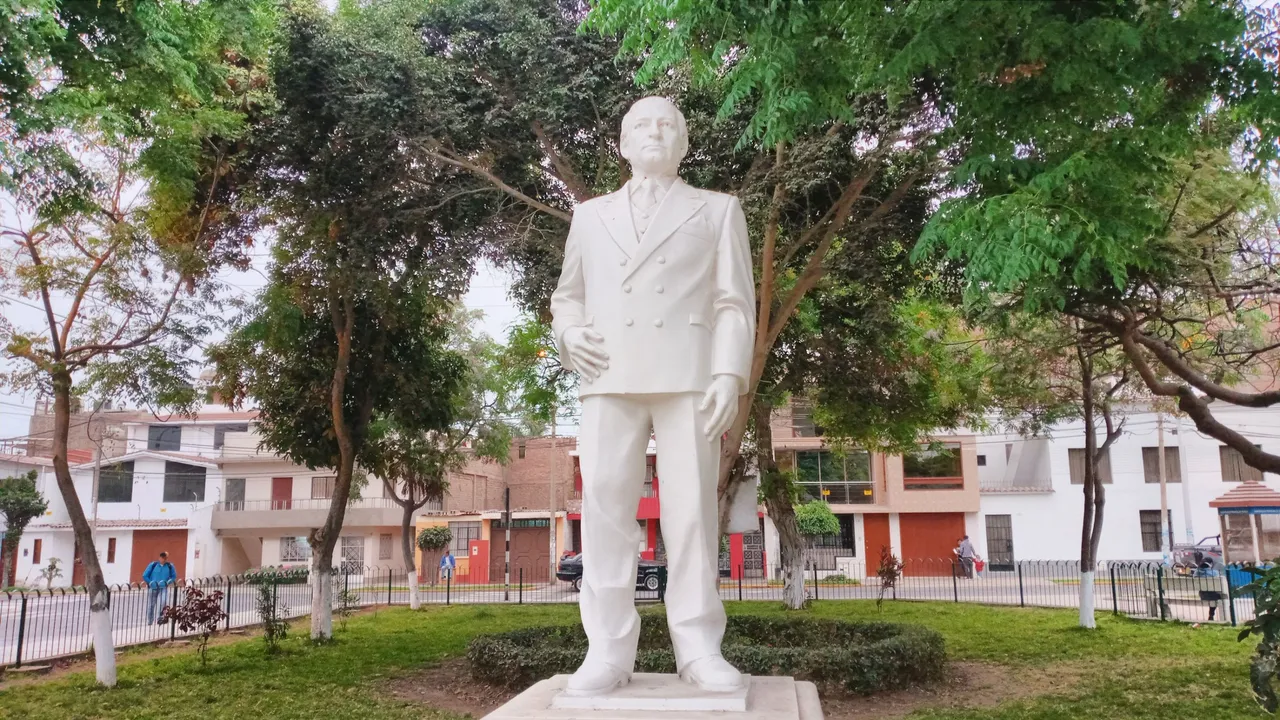
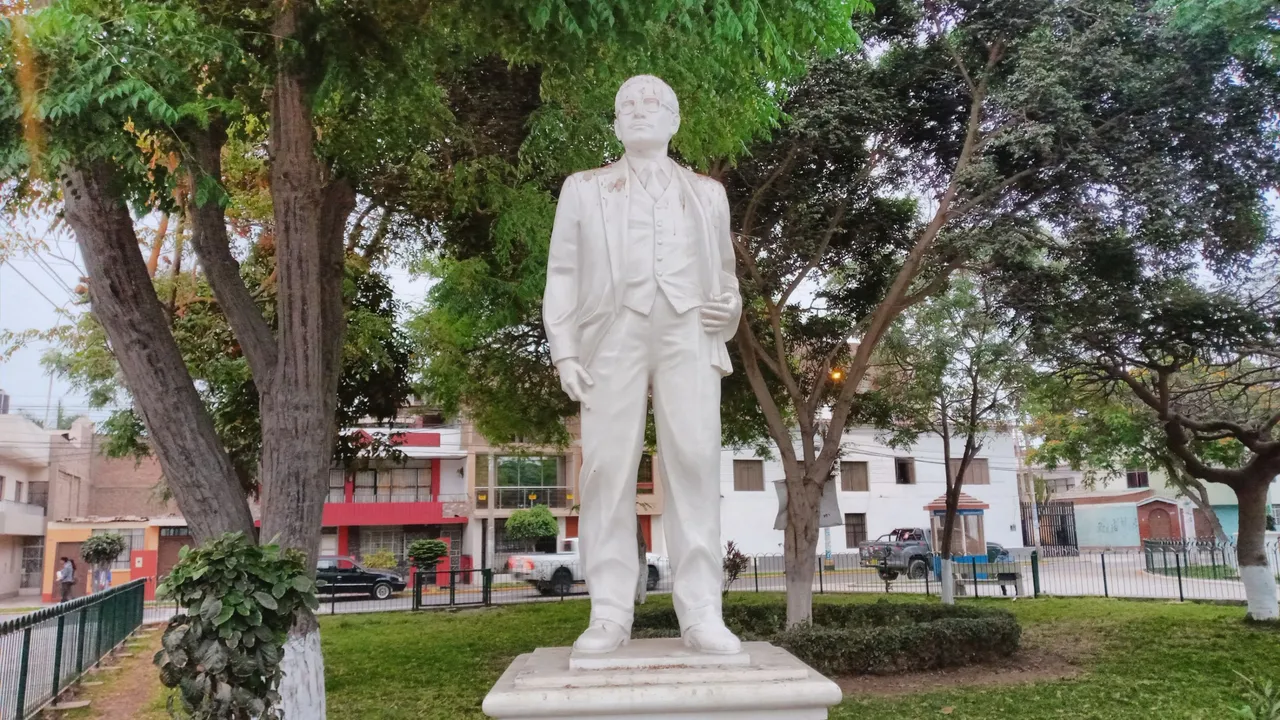
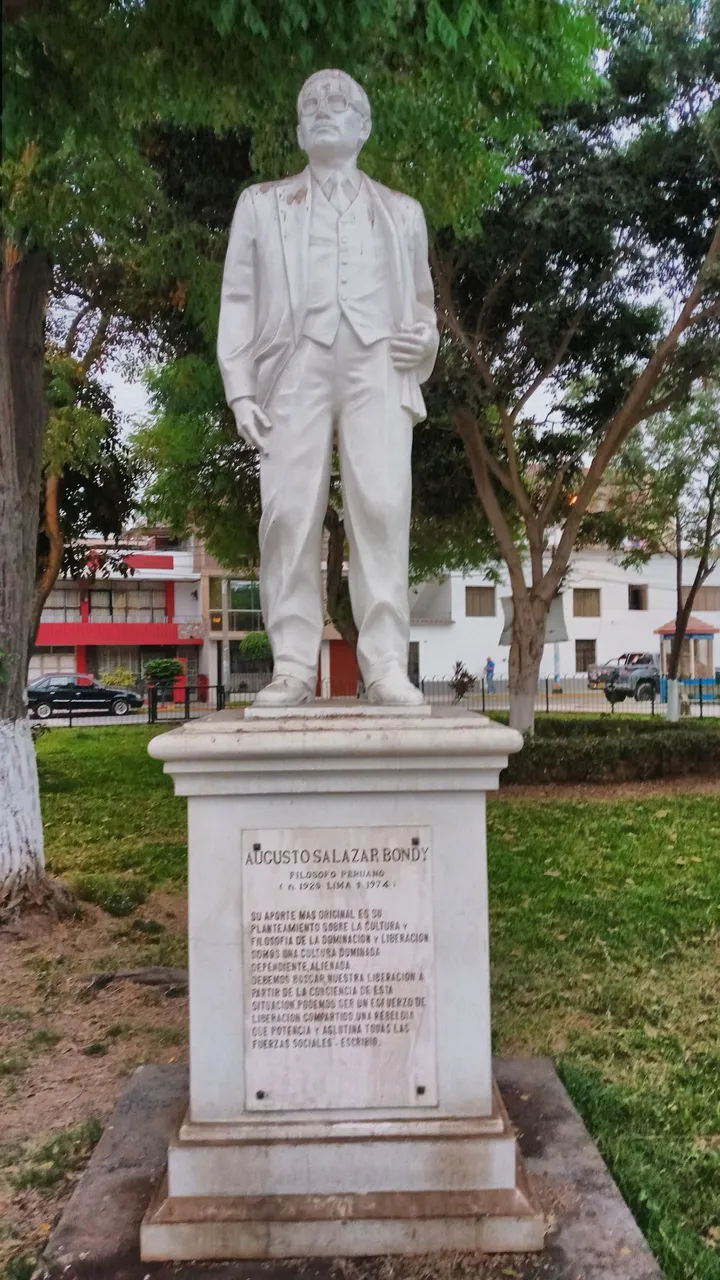

Continuamos con Sócrates y su discípulo Platón;
Sócrates, filósofo griego, nacido en Atenas en tiempos antes de cristo...
Usó la Mayeutica como método para generar pensamientos en el interlocutor. Cada hombre -expresó- posee su virtud y es preciso descubrirla. Debe conocerse sus límites, ponerse en claro consigo mismo para ser justo y solidario por eso sentenció: "Conócete a ti mismo".
Platón, aunque no lo conoció en vida, las enseñanzas de Sócrates le forjaron poor eso se dice que fue su discípulo...
Discípulo de Sócrates, fundó la academia su método fue la dialéctica y expresó su pensamiento en forma de diálogo. Descubrió que el ser de las cosas son las ideas, pero estas no estaban en la realidad ni en la mente del hombre sino en un mundo supraceleste. Por ello, el hombre cuya alma vaga por este mundo y se reencarna, conoce las cosas mediante la reminiscencia.
We continue with Socrates and his disciple Platon;
Socrates, Greek philosopher, born in Athens in the time before Christ...
He used Mayeutics as a method to generate thoughts in the interlocutor. Every man - he said - possesses his virtue and it is necessary to discover it. He must know his limits, be clear with himself in order to be just and supportive, that is why he said: "Know thyself".
Platón, although he did not know him in life, the teachings of Socrates forged him poor that is why it is said that he was his disciple...
Disciple of Socrates, he founded the academy, his method was dialectics and he expressed his thought in the form of dialogue. He discovered that the being of things are ideas, but these were not in reality or in the mind of man but in a supra-celestial world. Therefore, the man whose soul wanders in this world and is reincarnated, knows things through reminiscence.
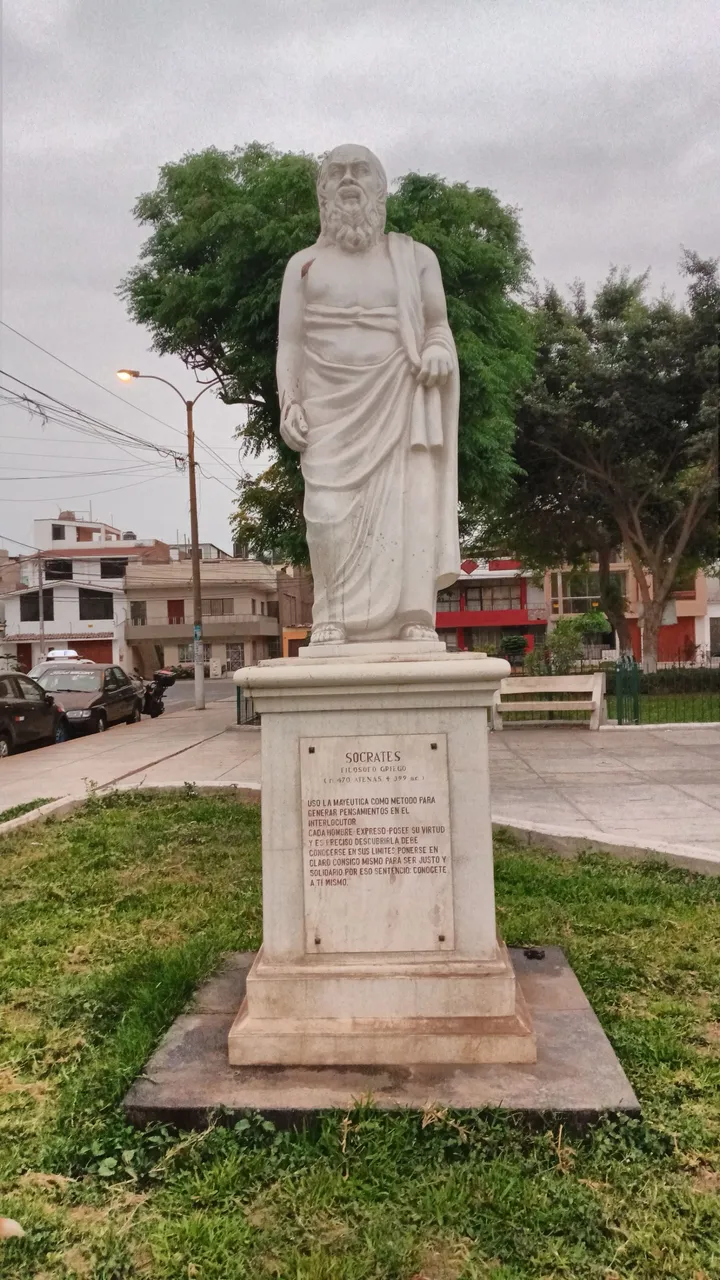
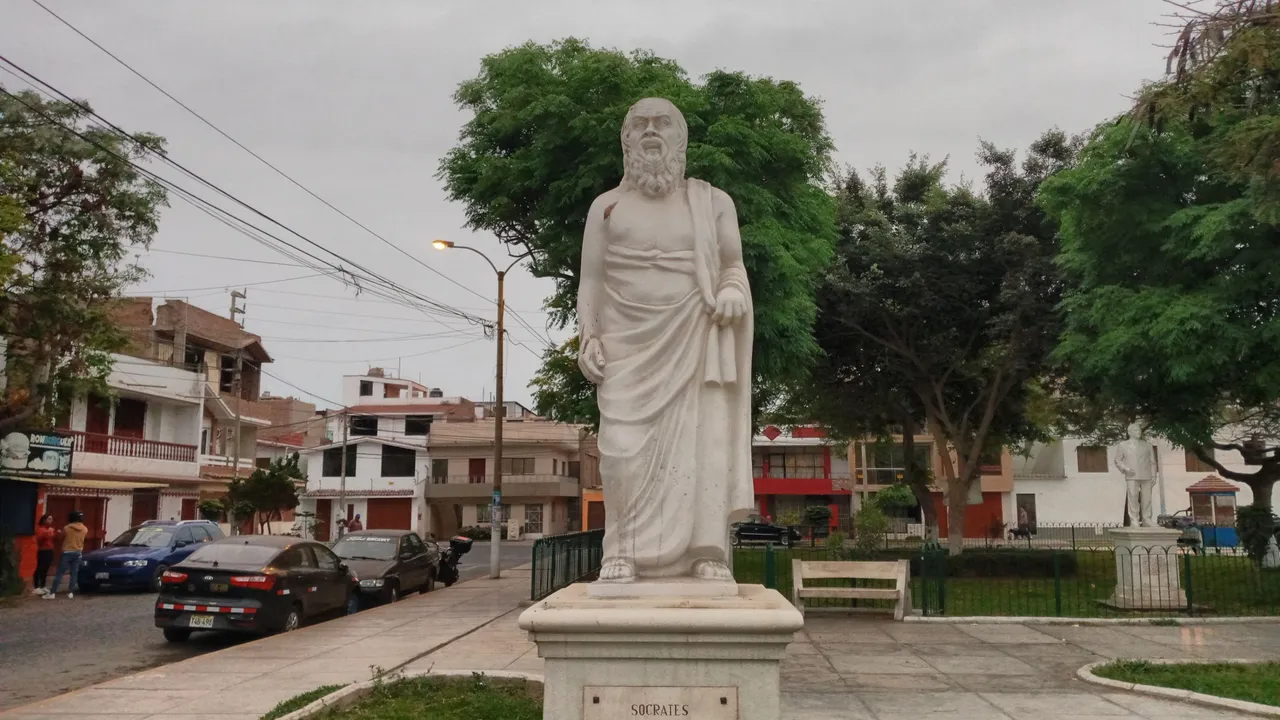
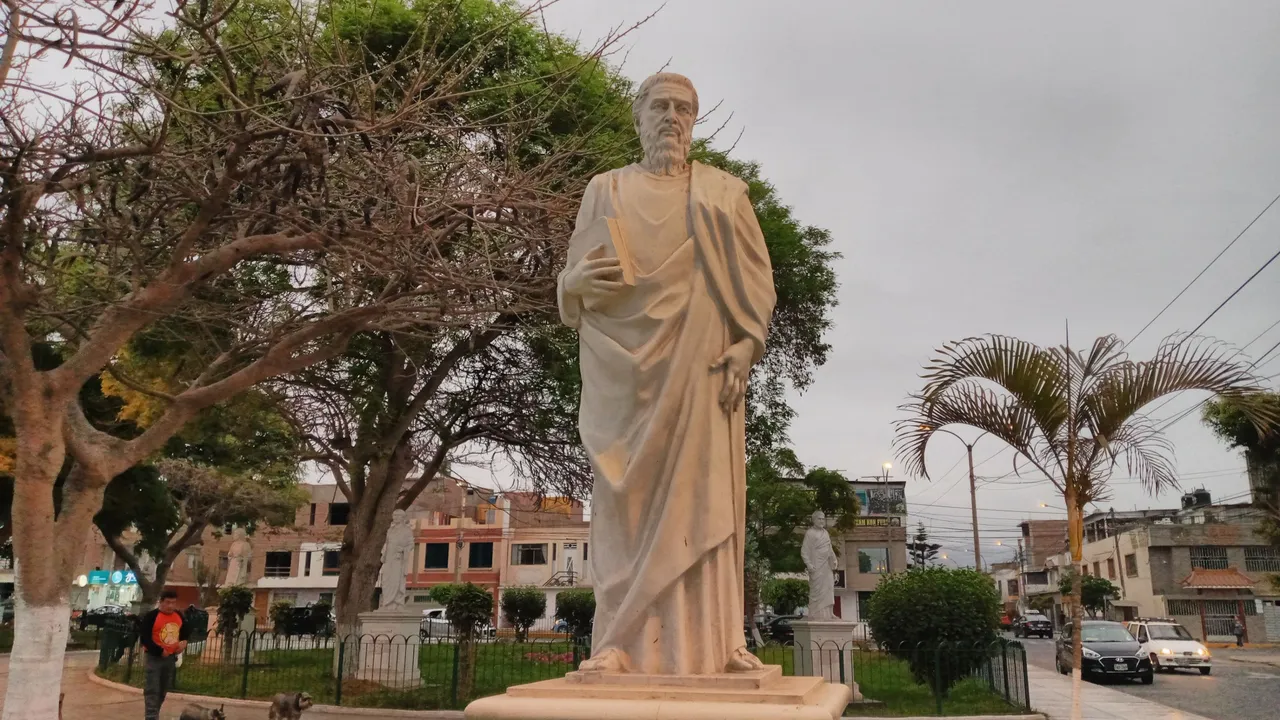
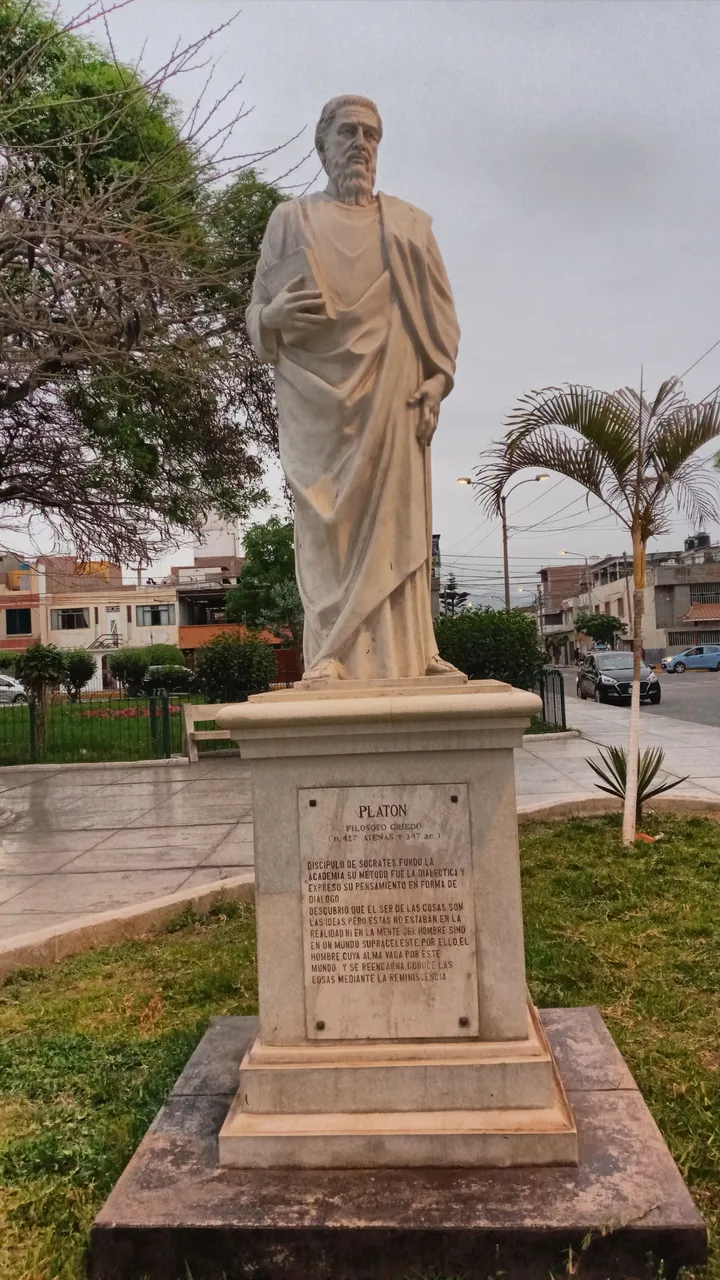

Seguimos con Aristóteles y Marco Tulio Cicerón...
Marco Tulio Cicerón, filósofo romano, nacido en Arpino algunos años antes de Cristo...
Orador, Político. Su pensamiento es ecléctico, pues acepta varias doctrinas filosoficas. Afirmaba que la virtud tiene valor por si misma, aunque los bienes no son totalmente indiferentes a su realizació y desenvolvimiento.
Aristoteles, fiosofo griego que habitó Macedonia antes de Cristo...
Discípulo de Platón. Fundó el Liceo y se apartó de su maestro contradiciendo su doctrina sobre las ideas. Concibió y fundó la lógica como instrumento, procedimiento analítico y de investigación de las ciencias. El conjunto de los tratados lógicos se denominó "Organón".
We continue with Aristotle and Marcus Tullius Cicero...
Marcus Tullius Cicero, Roman philosopher, born in Arpinum some years before Christ...
Orator, Politician. His thought is eclectic, because he accepts several philosophical doctrines. He affirmed that virtue has value by itself, although the goods are not totally indifferent to its realization and development.
Aristotle, Greek philosopher who lived in Macedonia before Christ...
Disciple of Plato. He founded the Lyceum and departed from his master by contradicting his doctrine on ideas. He conceived and founded logic as an instrument, an analytical and research procedure for the sciences. The set of logical treatises was called "Organon".
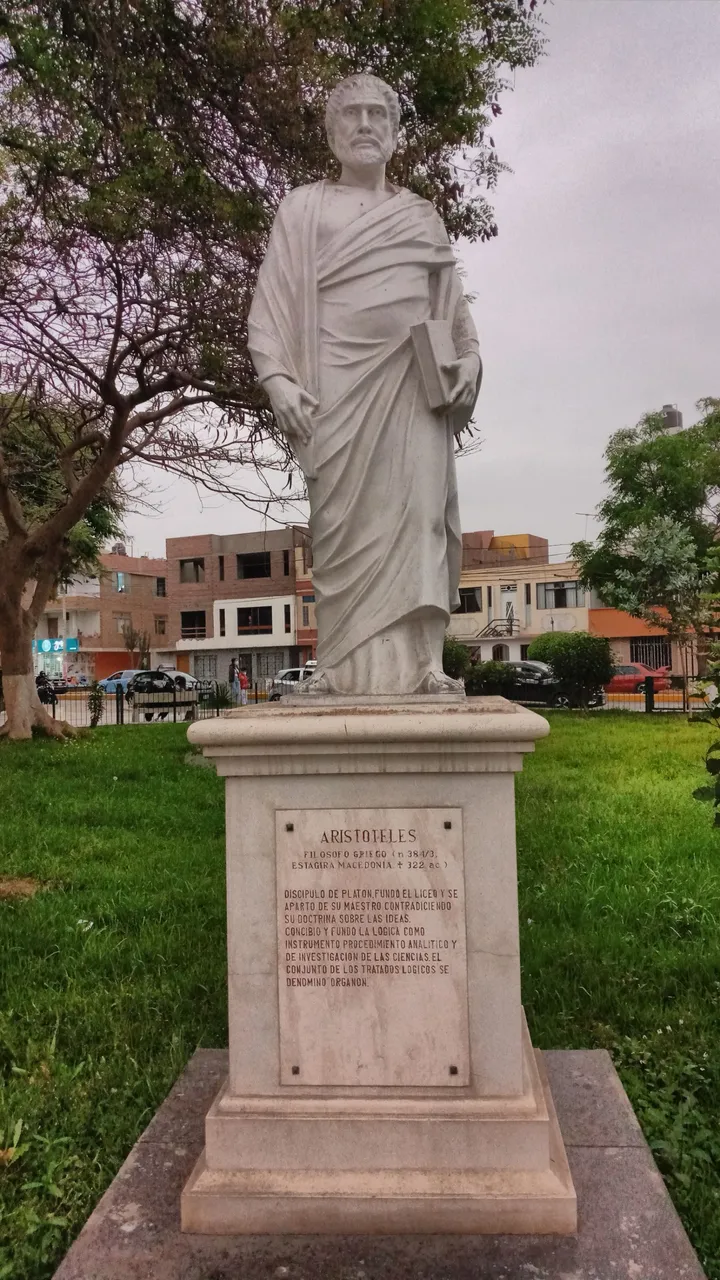
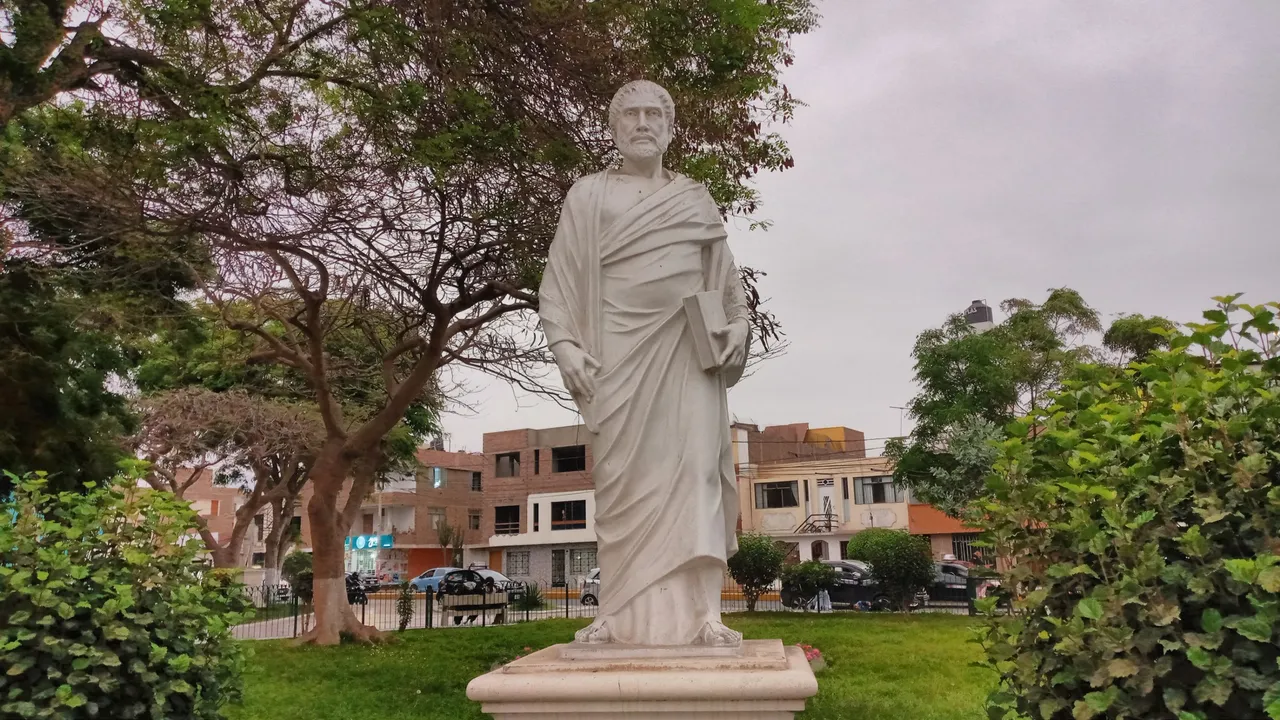
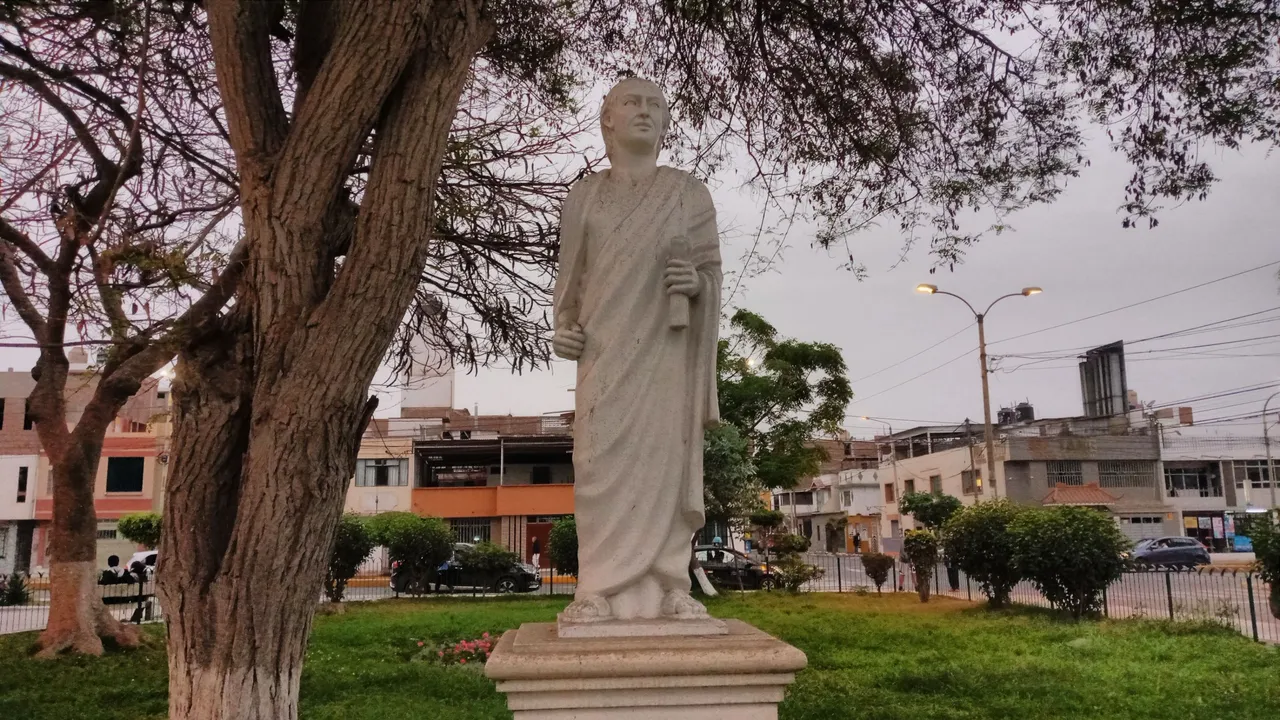
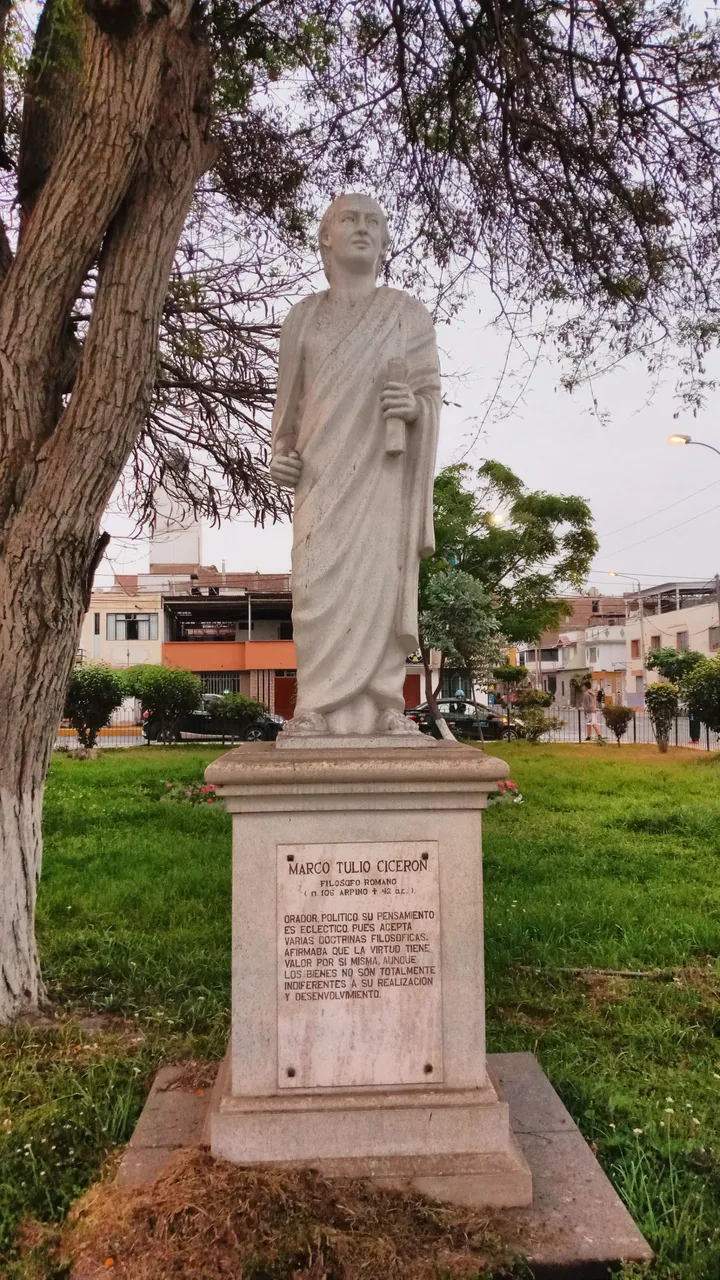

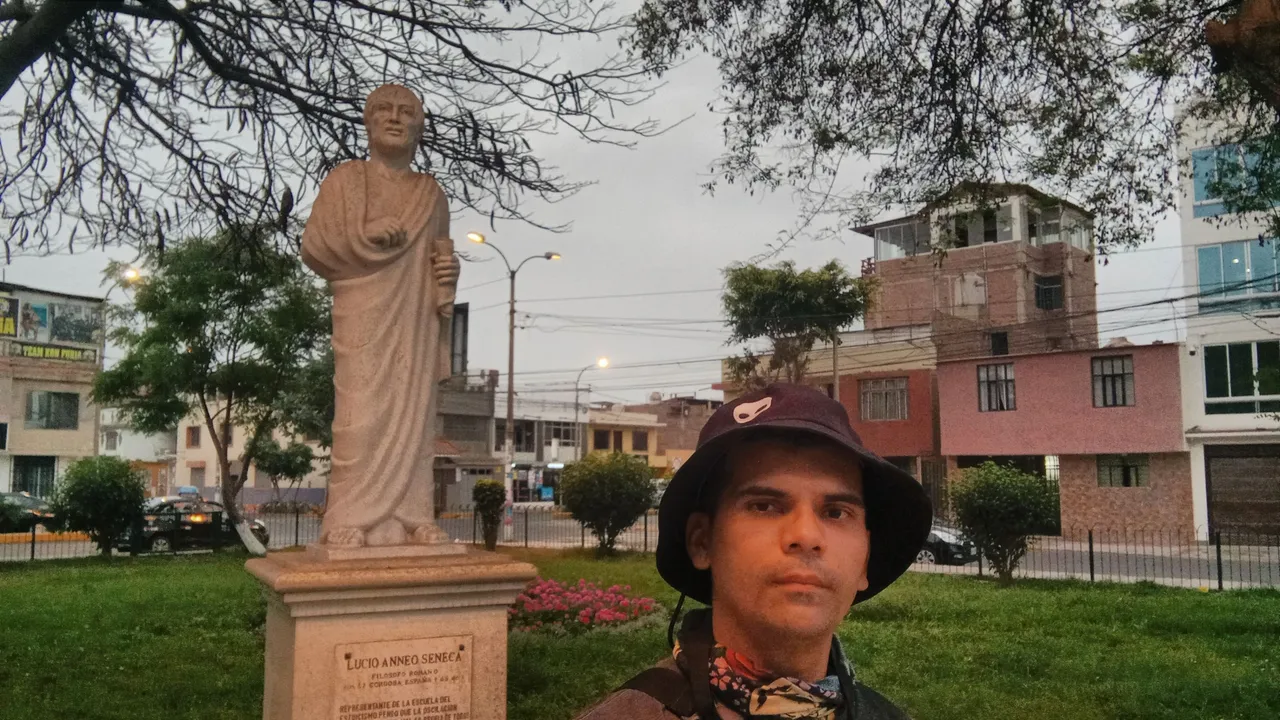
Vamos cerrando con uno de mis filósofos favoritos, Séneca y no menos importante, nuestro amigo Descartes...
Renato Descartes, filósofo francés que vivió durante los años 1596 y 1650...
Considerado como el padre de la filosofía moderna, parte de la duda radical sobre cualquier conocimiento acertado para encontrar un principio sobre el cual es imposible dudar y sea fundamento del conocimiento y la validez de la regla de la evidencia. Este principio es "Cogito Ergo Sum" (Pienso, luego existo)
Lucio Anneo Séneca, filosofo romano, de mis favoritos por su dedicación aportes al estoicismo como lo conocemos hoy día....
Representante de la escuela del Estoicismo pensó que la oscilación entre el bien y el mal es propia de todos los hombres. Su máxima moral es el parentesco universal entre los seres humanos. Afirmó "la naturaleza nos hizo parientes dándonos un mismo origen y un mismo fin, ella nos inspiró el amor recíproco y nos hizo iguales"."
Let's close with one of my favorite philosophers, Seneca and no less important, our friend Descartes...
René Descartes, French philosopher who lived between 1596 and 1650...
Considered as the father of modern philosophy, he starts from the radical doubt on any accurate knowledge to find a principle on which it is impossible to doubt and which is the foundation of knowledge and the validity of the rule of evidence. This principle is "Cogito Ergo Sum" (I think, therefore I am).
Lucius Annaeus Seneca, Roman philosopher, one of my favorites for his dedicated contributions to Stoicism as we know it today. ....
Representative of the school of Stoicism, he thought that the oscillation between good and evil is proper to all men. His moral maxim is the universal kinship among human beings. He affirmed "nature made us kin by giving us the same origin and the same end, she inspired us with reciprocal love and made us equal"."
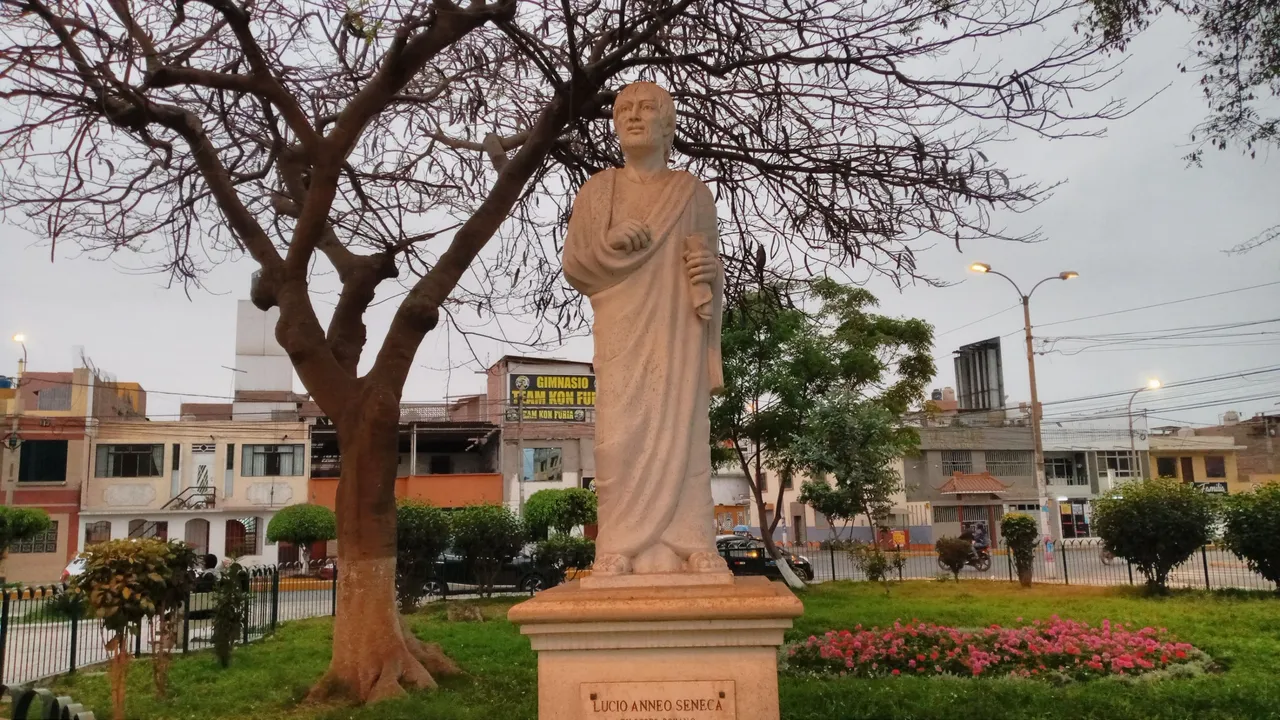
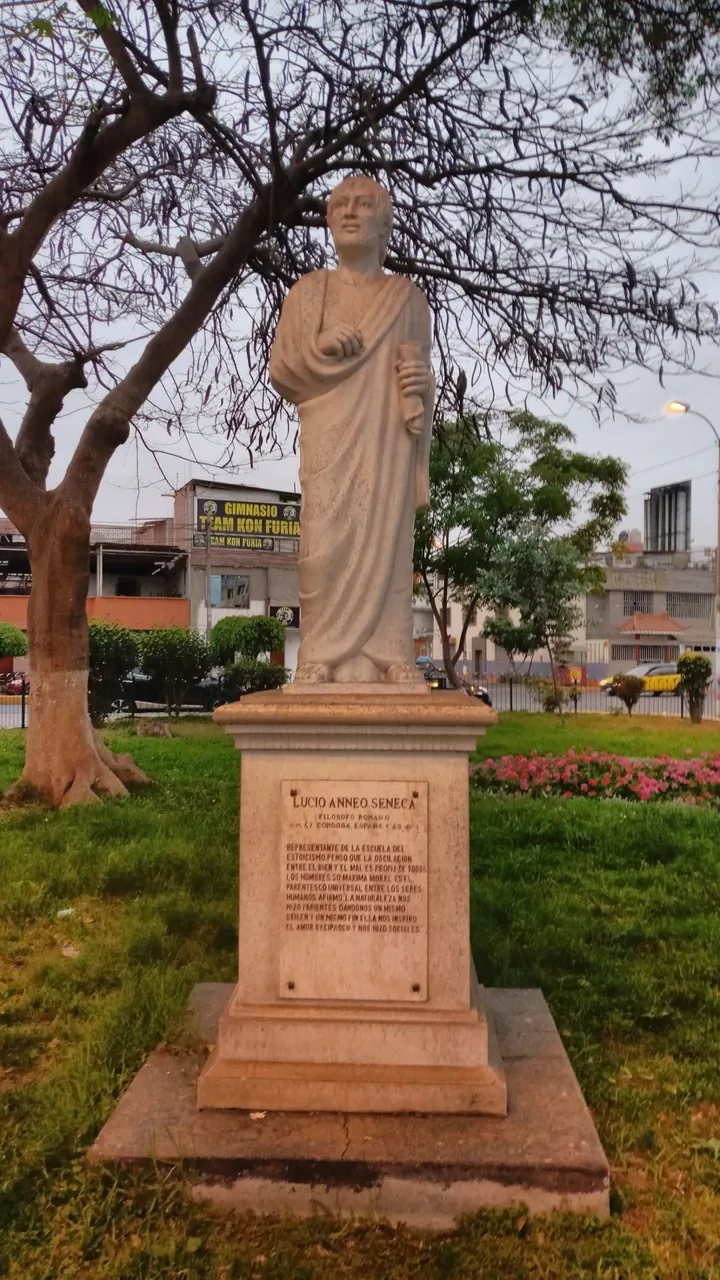
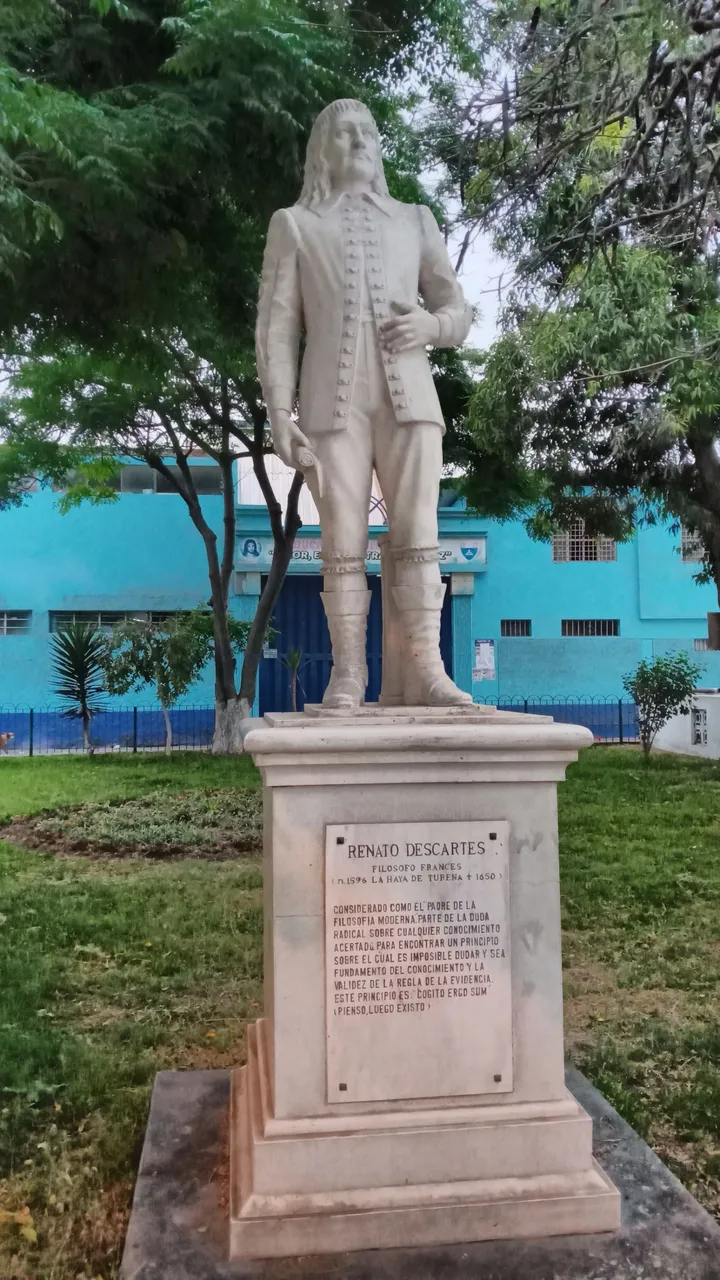
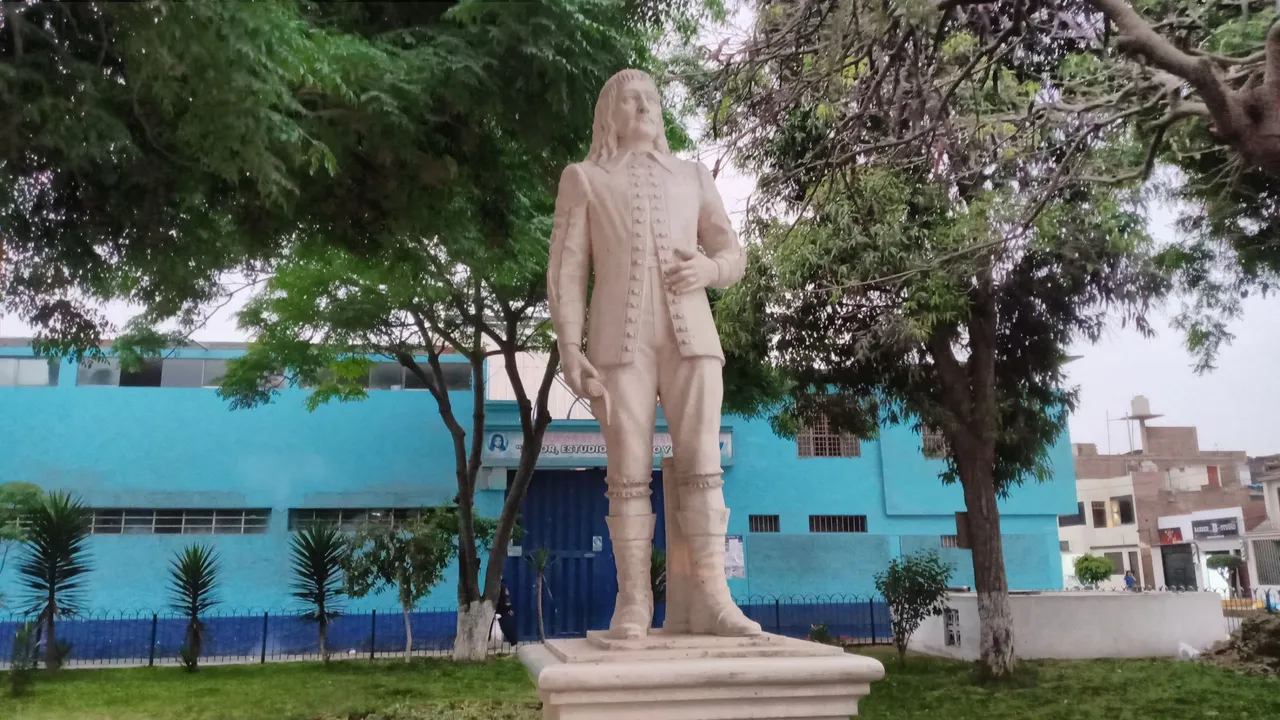

Natalia se despide junto a Voltaire, francés que habitó París entre los años 1694 y 1778
Voltaire, filósofo francés...
Filósofo representante de la ilustración francesa apelo a la sana razón humana para la lucha del bien contra el mal. Consideró que los seres humanos somos libres pero nuestra libertad es débil y limitada y la fortificamos con la costumbre de la reflexión. Si fuéramos siempre libres -dice- "seríamos lo mismo que Dios es".
Natalia says goodbye to Voltaire, Frenchman who lived in Paris between 1694 and 1778.
Voltaire, French philosopher...
Philosopher representative of the French Enlightenment, he appealed to the healthy human reason for the struggle of good against evil. He considered that human beings are free but our freedom is weak and limited and we fortify it with the habit of reflection. If we were always free, he said, "we would be the same as God is.
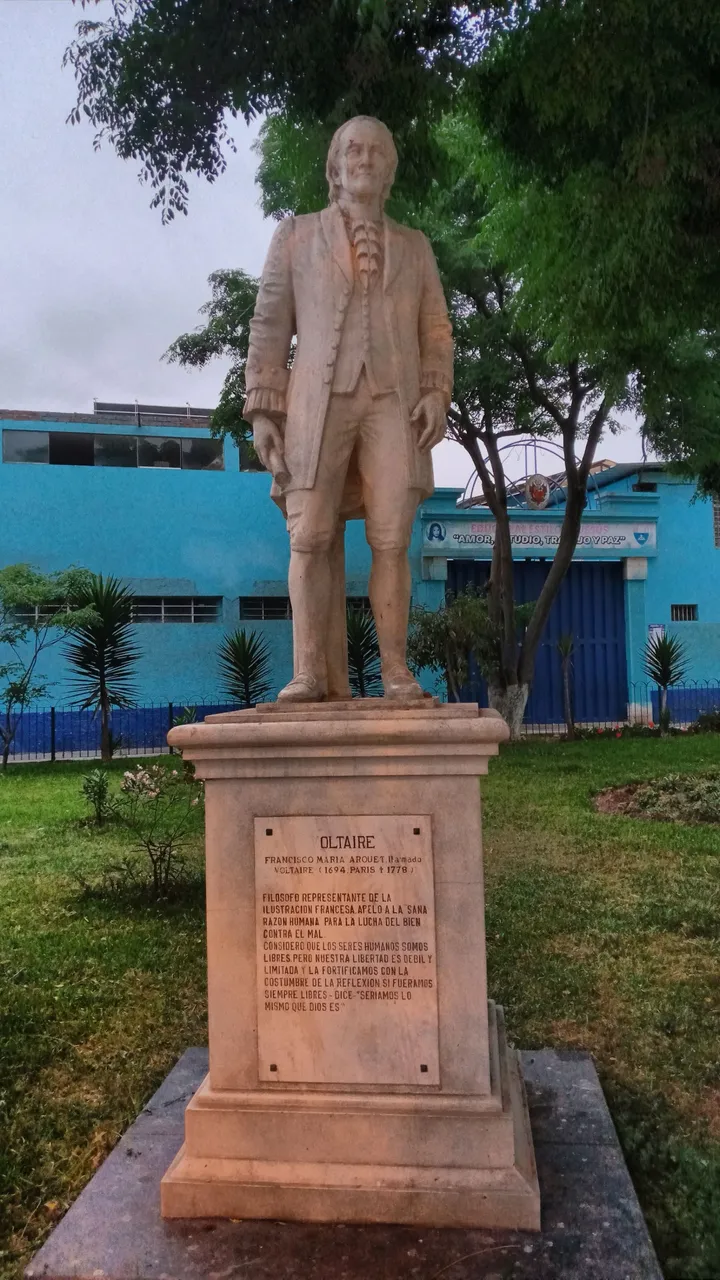
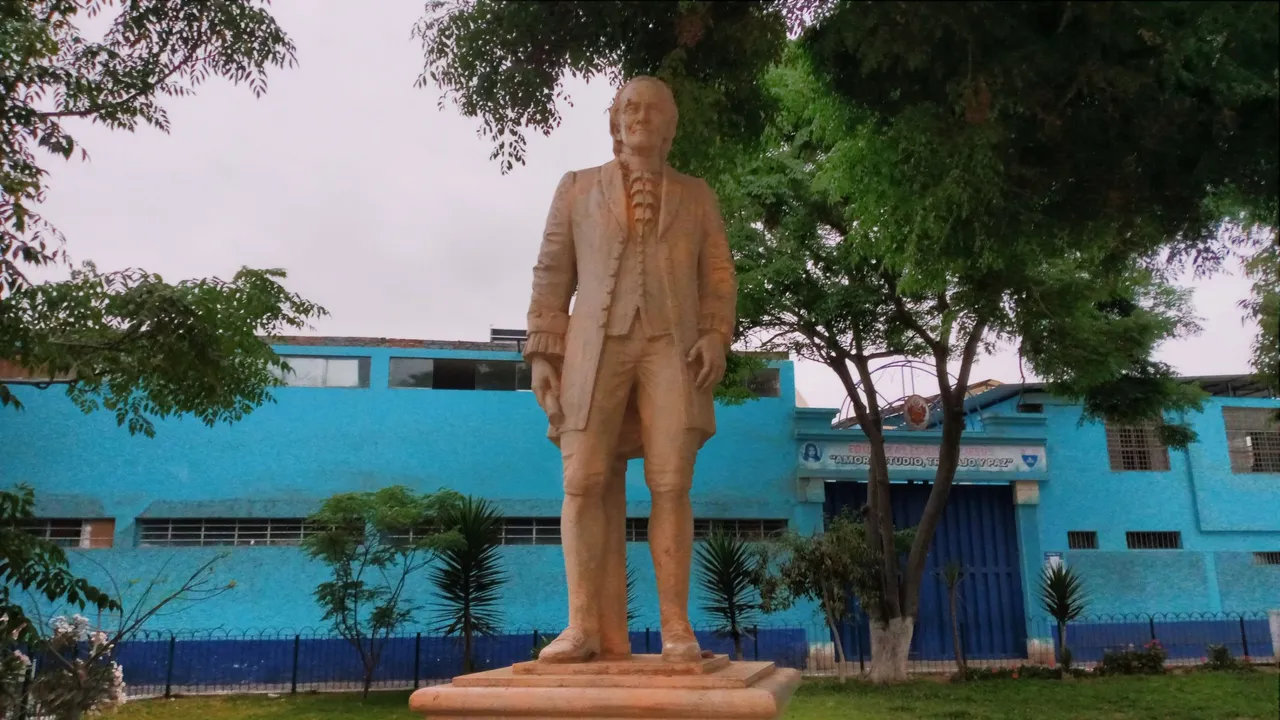
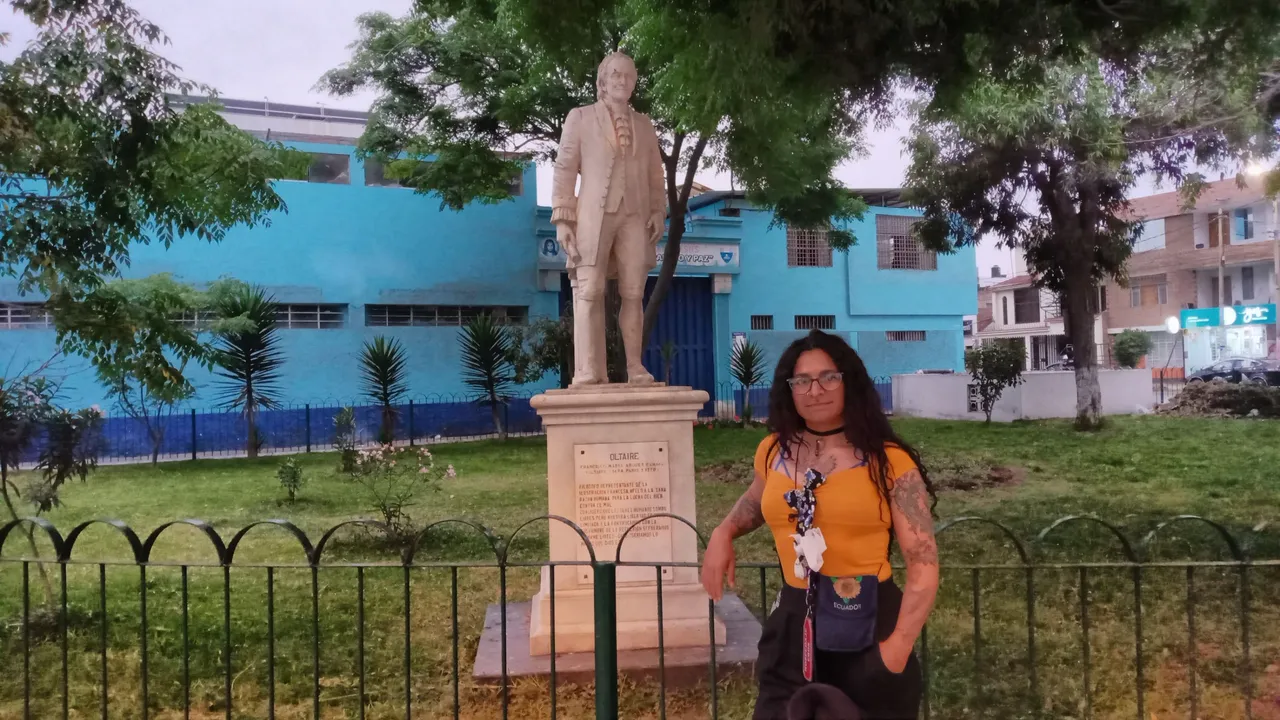
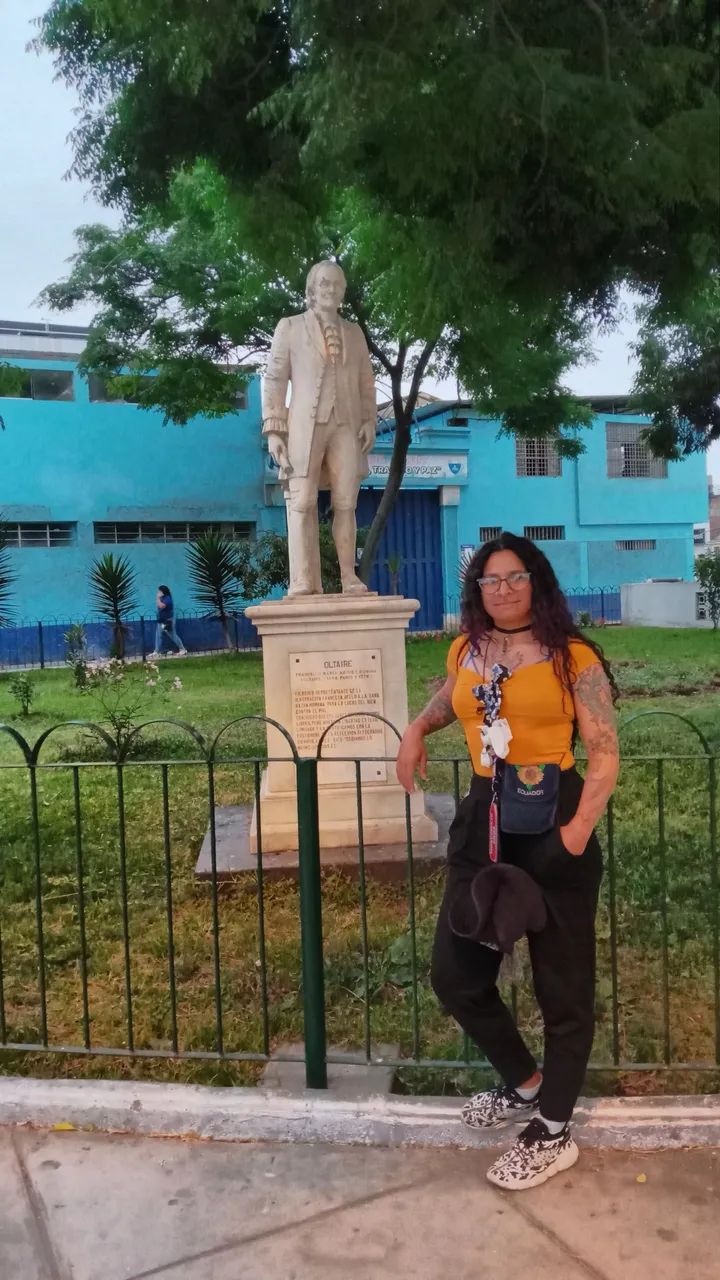

Espero que les haya gustado, saludos y bendiciones para todos! Hasta una próxima!
I hope you liked it, greetings and blessings to all! See you next time!

